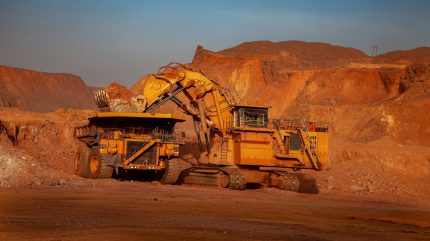This week Fortescue celebrated the launch of the first Liebherr Mining T 264 trucks at its Eliwana iron ore mining site. This incoming fleet of haul trucks will be the first to be converted to Fortescue’s in-house battery solution developed by WAE, a key step in its green fleet transition as it works towards its Real Zero by 2030 strategy.
The aim is Real Zero terrestrial emissions (scope 1 and 2) across Fortescue iron ore operations by 2030. “Real Zero means no fossil fuels, and where possible, no offsets. Offsets must only be used as a temporary solution while the technology or innovation required to completely eliminate fossil fuels is developed.”
These Liebherr trucks represent the latest development in a lot of zero emissions testing and trial work by Fortescue. First in 2021 was a battery-hydrogen fuel cell (FCEV) mining truck using a Terex Unit Rig MT4400 AC electric drive truck informally known as “Europa.” Then came the “Roadrunner” truck in 2022, another MT4400 AC electric drive truck that was converted to all battery operation by Fortescue using WAE’s 15 t, 1.4 MWh battery system – it is already at the Christmas Creek mine site for trials.
The agreement between Fortescue and Liebherr involves a phased supply of T 264 haul trucks for integration with Fortescue’s proprietary-owned battery electric and battery electric-fuel cell electric power systems, into Liebherr’s proprietary-owned base truck. Under the partnership, Fortescue is purchasing a fleet of 120 haul trucks from Liebherr, with delivery aligned to its fleet replacement and sustaining capital expenditure forecast. The commitment represents approximately 45% of the current haul truck fleet at Fortescue’s operations. Truck haulage consumed approximately 200 million litres of diesel in FY21 and accounted for 26% of Fortescue’s Scope 1 emissions.



